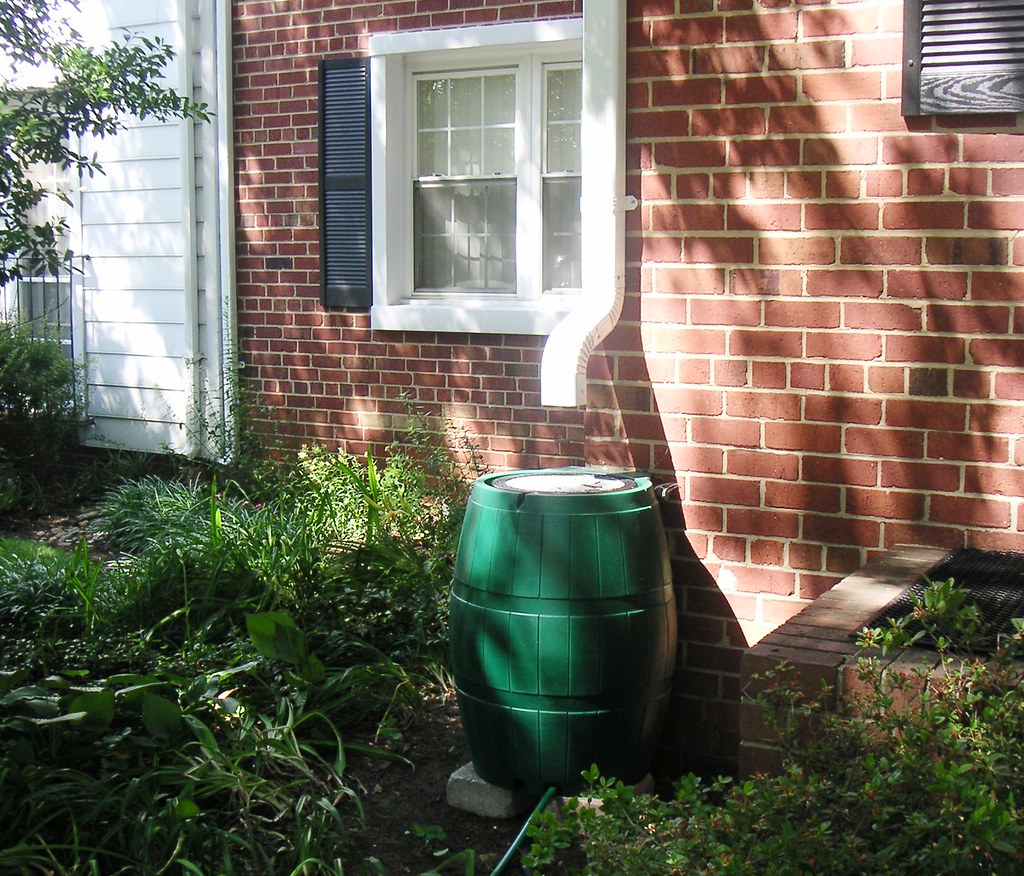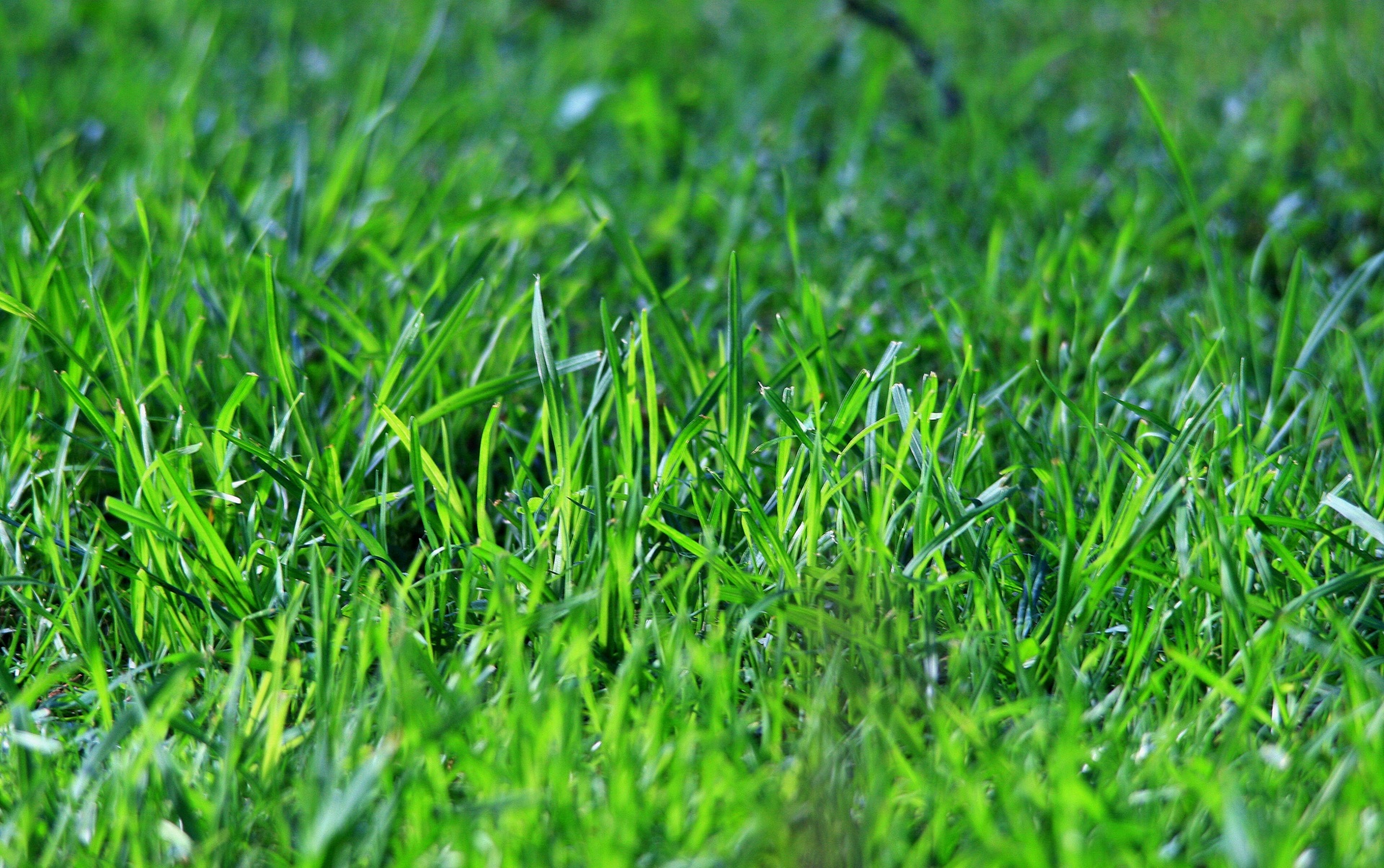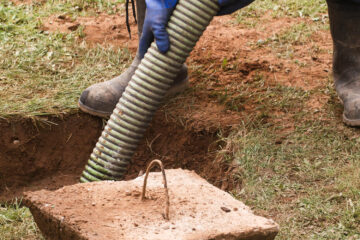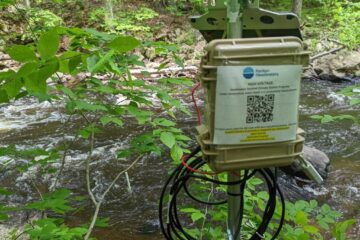Guides and resources to get started on your River-Friendly yard.
River-Friendly certification programs promote clean water and a healthy environment through voluntary action by individuals and institutions.
There are many ways to create landscapes harmonious with surrounding ecosystems and the larger watershed region. Below you will find information and resources to guide you in eco-friendly and river-friendly landscaping practices.
Still have questions? Contact us at info@raritanheadwaters.org and one of our staff naturalists or scientists will be happy to help! If you plan to implement some of these practices, or are already doing so, be sure to complete the River-Friendly Resident Survey!
One of our favorite resources is Jersey Friendly Yard’s Interactive Yard tool. Check it out!

Rain Gardens and Rain Barrels
Rain gardens and rain barrels are two “green infrastructure” solutions for home landscapes. Rain barrels collect water running off your roof, while rain gardens are designed to slow the flow of stormwater running off your yard. They can be installed individually or in tandem to reduce stormwater that can potentially wash contaminants into local rivers and streams.
- Check out a recording of our River-Friendly Webinar on Rain Gardens, Rain Barrels, and Downspout Planters here
- Click here for Rutgers’ Rain Garden Manual
- Click here for Rutgers’ Rain Barrel Resources
- Information about Downspout Planters can be found here Philadelphia Rain Check Program
Caring for your Lawn
Lawns are everywhere in the American landscape! They’re great spaces for recreation and relaxation, but there are downsides:
- Lawns require frequent watering to stay green during the hot, dry summer.
- Chemicals frequently used on lawns can run off during storms and pollute streams and ground water.
- Gas-powered machinery used to maintain lawns contribute to local air and water pollution.
- Grass clippings from mowed lawns fill landfills, and transporting them further contributes to air pollution.
Here are some simple ways to create a more River-Friendly lawn:
- Mow only the areas used for recreation.
- Allow clover and other native groundcovers to grow in other areas, which reduces herbicide use and creates a healthier, more diverse landscape.
- Maintain your sprinkler system, keeping watering to a minimum. Water at night to minimize evaporation.
- Leave grass clippings and leaves on the ground to act as natural fertilizers and contribute to soil and ecosystem health. Find more information about grasscycling here.
- Reduce or avoid chemical use, which will contribute to the health of the ecosystem and your family! Helpful information on chemical alternatives can be found at Our Water Our World and Pesticide Free Lawns Coalition.
- Use electric or hand-powered tools instead of gas-powered tools.
Click here for JerseyFriendlyYards.org – a great resource to help “Build a Better Yard,” with our native New Jersey environment in mind!
Click here for some more resources – Rutgers Organic Land Care
Click here for a database of landscape professionals and organization staff who have been certified by the Rutgers Cooperative Extension Organic Land Care program.
River-Friendly Gardening
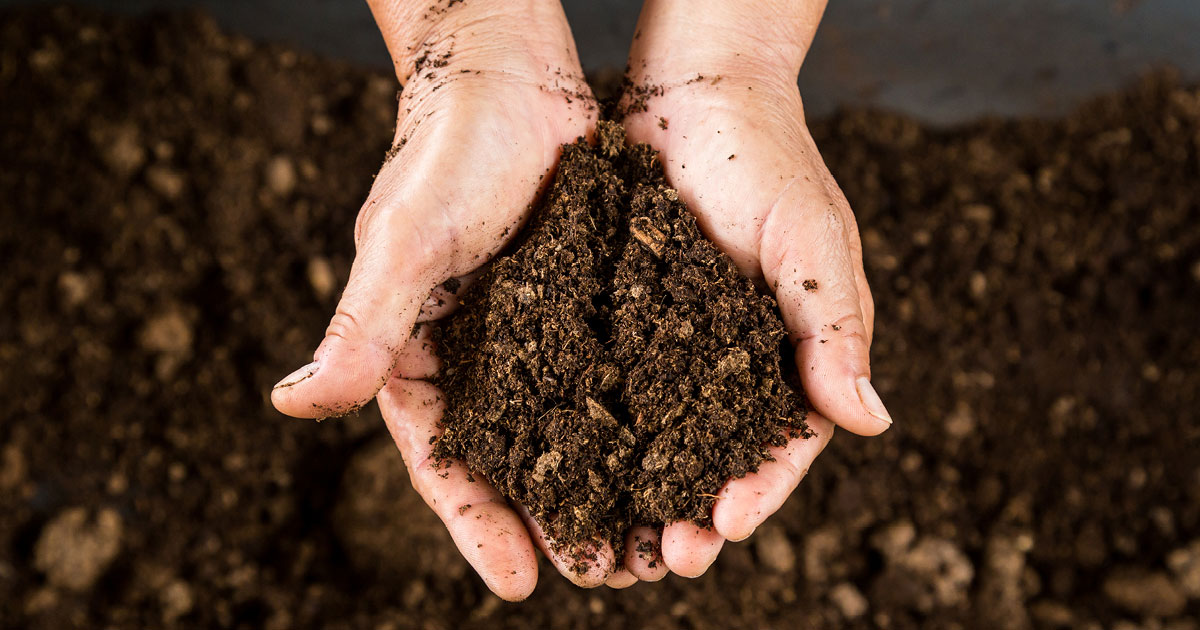
Soil Testing: Creating a River-Friendy garden starts with getting to know the plants and soil of your yard. We recommend that homeowners test their soil annually to find out what plants will grow best and whether soil enhancements are needed. Soil testing is easy! Simply contact your county’s Cooperative Extension office, pick up a test kit, send a soil sample and wait for results. Everything you need to know can be found at the RU Soil Testing Laboratory. (Note: new COVID-19 safety precautions are in place. Contact your local Cooperative Extension office for more information.)
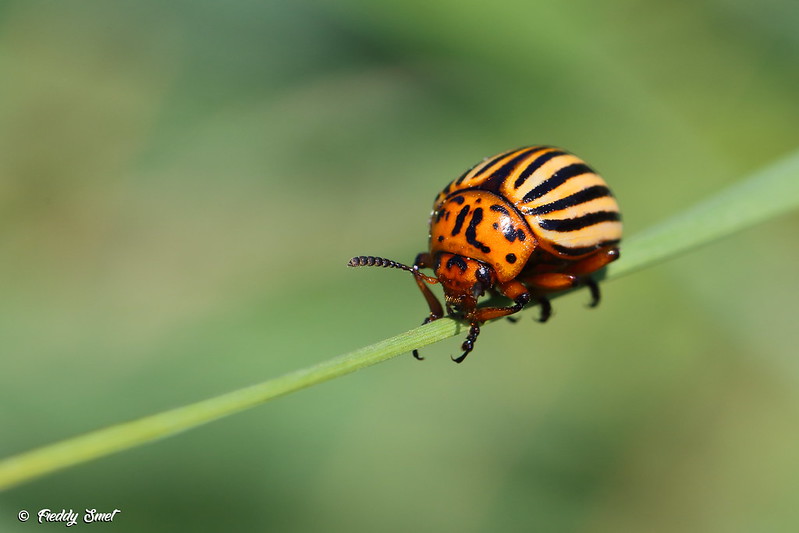
Garden Friends and Foes: Learn to identify common garden pests and garden friends, and how to control them naturally. Chemical pesticides can harm pollinators and other beneficial insects. These chemicals travel up the food chain, affecting birds, mammals, amphibians and even humans. Once you learn to identify common insects and other factors affecting your garden, you can implement an Integrated Pest Management plan. This can include preventative measures, physical removal of pests before they become a problem, and organic techniques to keep pests from eating your plants. See below for some of our favorite resources.
- Click here to hear over 500 episodes of the radio show You Bet Your Garden. You’ll find lots of answers to gardening questions!
- Identify common garden pests here at Planet Natural, and beneficial insects here.
Composting: Composting is a great River-Friendly practice! It decreases organic waste in landfills, reduces greenhouse gas creation, and converts valuable nutrients from yard waste and kitchen scraps into a rich garden additive – all in a closed, no-waste system! It’s easy to get started! Check out Rodale Institute’s resources on composting. They have a great cheat sheet for getting started with backyard composting, located here.
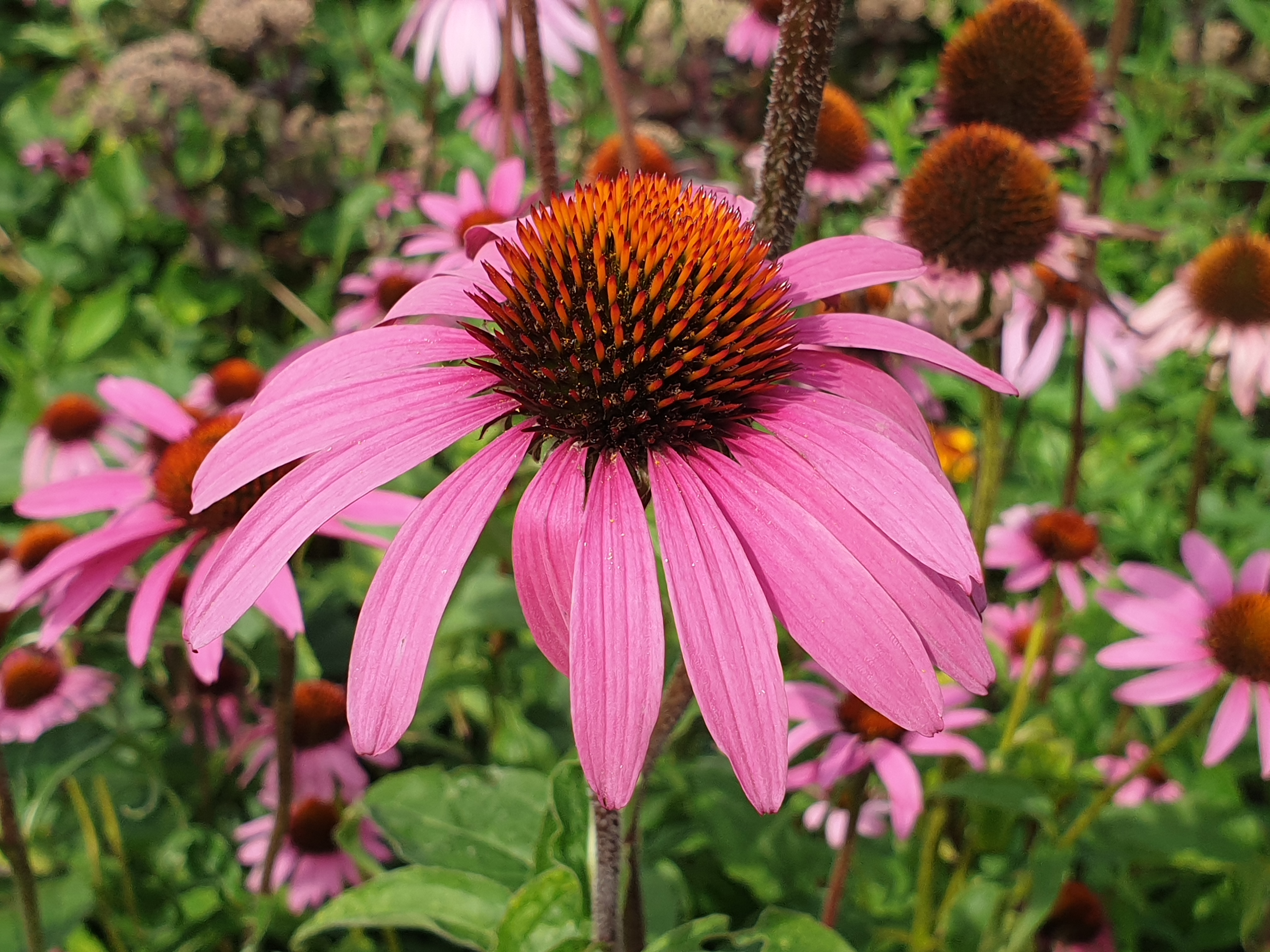 Native vs. Invasive Plants
Native vs. Invasive Plants
Native plants not only add beauty to New Jersey yards, they offer important environmental and economic benefits. Native plants help conserve and filter water, provide habitat for native wildlife, protect soil resources, and reduce the costs and environmental impacts associated with fertilizers and pesticides. From the unique plant communities of the Pinelands to coastal salt marshes to the hardwood forests in the Highlands, New Jersey’s native plants give us a “sense of place.” Search for New Jersey Native Plants.
What are native plants?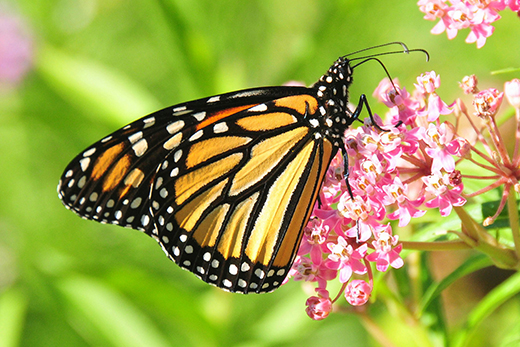
Native plants are species indigenous to a given geographic area, meaning they grow without human introduction. The plants found in New Jersey before European settlement are considered native. These plants evolved over thousands of years and are adapted to the climate of our region, as well as the ecosystem of native plants and animals that surrounds them. Planting and protecting native plants encourages a healthy and diverse ecosystem. Over 2,000 native plant species have been identified by the Native Plant Society of New Jersey, and scientists are always working to gather more data on changing plant populations and climate.
Replacing part of your lawn with native plantings:
- Reduces yard maintenance
- Reduces water usage
- Reduces yard waste
- Reduces the use of chemicals
- Reduces air pollution caused by power equipment
- Increase native wildlife habitat!
Information on native plants can be found on the Jersey Friendly Yards plant database and on the Native Plant Society of New Jersey website.
Some of our favorite local nurseries that specialize in native plants include:
Information on identifying and removing non-native, invasive plants – including easy-to-read fact sheets – can be found at the New Jersey Invasive Species Strike Team website
Still have questions? Contact us at info@raritanheadwaters.org and our naturalists and scientists will be happy to help!

